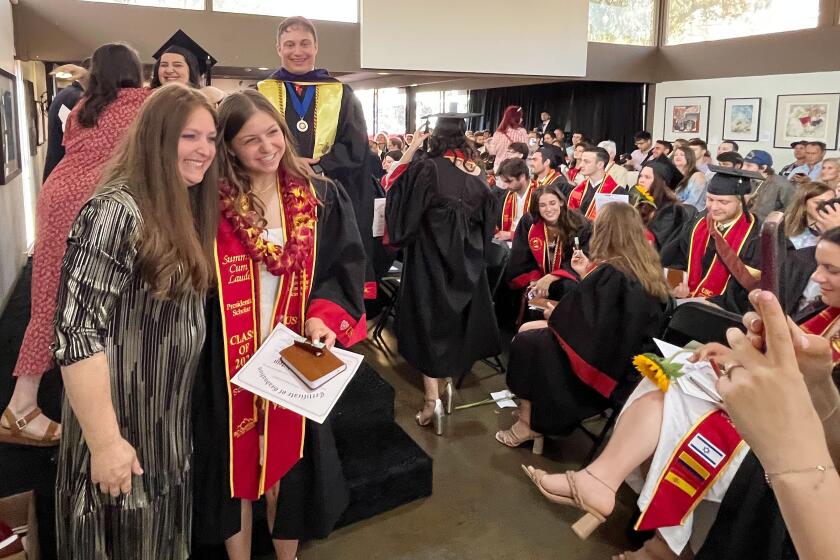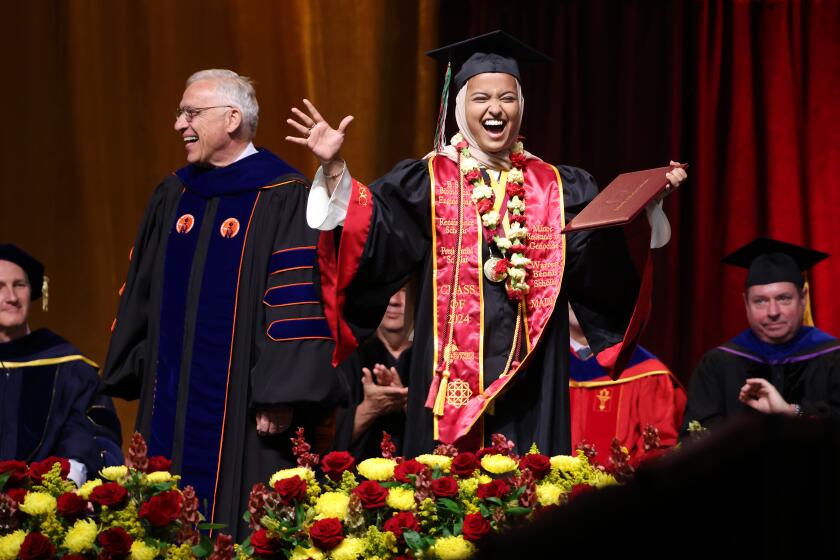Caltech President Goldberger to Resign, Lead Science Think Tank
Marvin L. Goldberger, a popular and widely respected physicist who has headed the California Institute of Technology in Pasadena since 1978, announced Thursday that he will step down in September to become director of a noted science think tank, the Institute for Advanced Study in Princeton, N.J.
Goldberger, 64, who is Caltech’s fourth president, had announced last year that he planned to retire no later than June, 1988. He said in an interview Thursday that he decided to depart a year earlier than planned in order to accept the post at the Princeton institute.
“I’ve been extremely happy here,” Goldberger said. “I hate to leave California, and I hate to leave what is an unbelievably high-quality institution. But at the same time, I’m looking forward with great anticipation to a new and very exciting opportunity.”
Goldberger will become the sixth director in the history of the Institute for Advanced Study, which was founded in 1930. Although it has but 22 permanent professors, it is renowned for its eminent faculty, which in its early days included Albert Einstein. The institute concentrates on highly theoretical work in mathematics, historical studies, natural and social sciences.
A search committee headed by Ruben Mettler, chairman of TRW Inc. and president of the Caltech board of trustees, has begun looking for a successor to Goldberger and hopes to name the new president sometime this summer, a Caltech official said.
Goldberger was a Princeton University physics professor before his appointment nine years ago as Caltech president. He is generally credited with having helped plot new directions for the small, independent science and technology school without forcing the institute to grow.
During his tenure, Goldberger attracted two of the largest endowments the school has received: a $70-million grant from the W. M. Keck Foundation to construct an observatory to house the world’s most powerful telescope in Hawaii and a $50-million pledge from the Arnold and Mabel Beckman Foundation to establish an institute on the Pasadena campus devoted to exploring relationships between biology and chemistry.
One of the long-term challenges still facing Caltech, Goldberger said, is achieving change while avoiding significant growth, either in its faculty and enrollment or physical size of the campus.
Caltech enrolls 1,800 students, about equally divided between graduate and undergraduate students.
More to Read
Start your day right
Sign up for Essential California for news, features and recommendations from the L.A. Times and beyond in your inbox six days a week.
You may occasionally receive promotional content from the Los Angeles Times.







